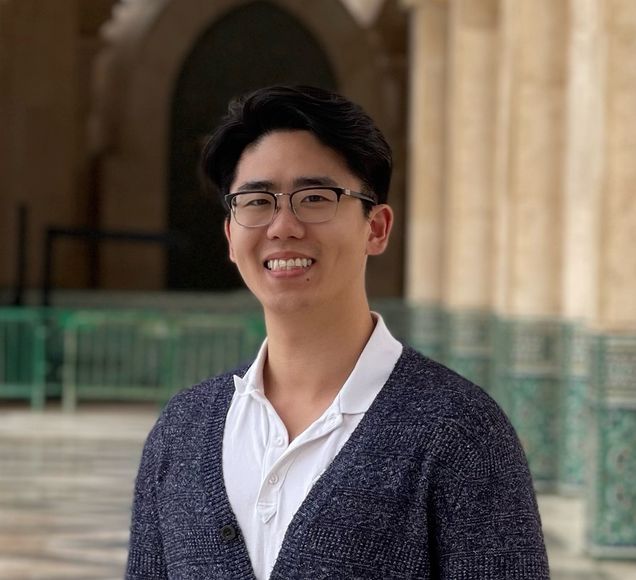Moorman-Simon Fellowship 2022-2023
The Moorman-Simon Fellowship in Computational Biomedicine was established in the summer of 2019 to provide fellowships to current Ph.D. students in Computational Biomedicine who are working in the field of cancer research. This fund was established through a generous gift by Trustee Ruth A. Moorman (CAS’88, Wheelock’89,’09, Parent BUA’15) and Sheldon N. Simon.
Congratulations to Conor Shea and Charley Xi, the recipients of the 2022-2023 Moorman Simon Fellowship. Please see below for more information on their projects.
Conor Shea, MD/PhD Candidate, Beane and Spira-Lenburg Labs

Lung cancer is the most common cause of cancer death in the United States and the world. Squamous cell carcinoma, the second most common subtype of lung cancer, is preceded by precursors (“premalignant lesions”, “PMLs”), which could be targeted to intercept lung cancer and improve patient mortality. While we know that most of these PMLs will not progress to cancer, we are currently unable to a) predict which patients’ PMLs will progress to cancer, and b) intercept PMLs before they become cancer. Our lack of knowledge about the biology of PMLs limits our ability to accomplish these goals, and my project seeks to address those knowledge gaps. In my thesis work, I use single cell RNA transcriptomics to profile the PML cellular ecosystem and identify changes associated with each step (“grade”) of PML cancerization. Already, I have identified PML grade-associated changes in several cell types. I am also combining my single cell RNA transcriptomics data with previous work in the lab to study gene expression signatures associated with PML expression. The findings in this project can be used to improve lung cancer mortality by identifying patients at highest risk of cancer and mechanisms for PML interception.
Zhan (Charley) Xi, PhD Candidate, Beane and Mazzilli Labs

The goal of my project is to study the tumor immune microenvironment (TIME) of lung cancer, which may be used to develop enhanced approaches to assess the progression and severity of early lung cancer and to suggest early intervention strategies. To do so, I am using single cell RNA sequencing (scRNA-seq) and Cellular Indexing of Transcriptomes and Epitopes by Sequencing (CITE-Seq) to study the molecular changes at a single cell level, including the changes in protein and gene expression that dictate a cell’s activity. Then I will use imaging mass cytometry (IMC) to identify the spatial locations of the cells identified within the lung cancer tissue and use computational methods to decipher the interactions among the different types of immune cells, and how they collaborate as a group to suppress or enhance the tumor’s progression. Ultimately, our goal for future patients is being able to accurately diagnose the severity and progression of lung cancer to reduce cancer mortality.